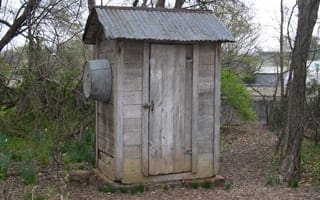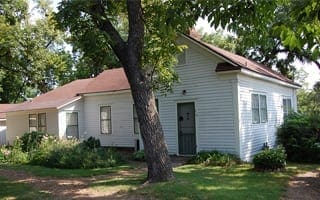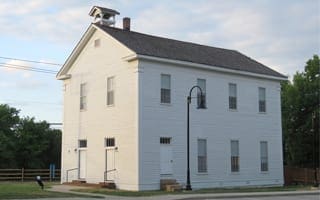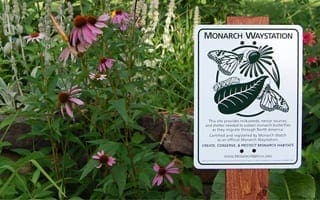Campus

Our campus includes an exhibit hall, research library, archives, meeting room, collections storage, store, and staff offices housed in a modern 22,000-square-foot building on the original town square of Shiloh/Springdale.

Victor Cooper built Cooper Barn in the 1930s on his small farm north of Springdale. The farm equipment housed in the barn includes a wagon used on the nearby Joyner farm in 1911. Together they offer a glimpse at farm life in the early to mid 1930s in the Ozarks.

John Bell Steele build the Steele General Store in Springdale in the 1870s. The metal porch awning was originally part of the Mooney-Barker Drugstore in Pettigrew (Madison County).

Dr. John C. Carter ran his medical practice from this building, built in the 1880s in the Middle Fork Valley area of south Washington County. The sandstone foundation formed a springhouse for food storage. Dr. John C. Carter’s Office is one of several historic buildings on the Shiloh Museum of Ozark History campus.

William Cartmell built the Cartmell Outhouse on the family farm near Brentwood in the 1930s (Washington County). It’s a two-seater!

The Ritter-McDonald Log Cabin is an excellent example of an 1850s cabin. It originally stood in Elm Springs (Washington County). Like many log cabins, it eventually became a room in a larger house. The cabin is built in the wattle and daub style where the wood (wattle) is interspersed with a sticky material called daub.

Archibald Smith built the Smith-Searcy House in the 1870s. In 1884, Wesley and Canzadie Searcy bought the house and kept it in the family, earning the house its current name. Today, it reflects the life of an upper middle-class 1940s Ozark town family.

A white two story rectangular building with a small bell tower on the left side of the roof.
Shiloh Meeting Hall is one of the most visible landmarks in downtown Springdale. The community built the two story building in 1871 as a church and community building. Later it became home to the local Oddfellows organization.

Our campus is full of native flowers, shrubs and trees that offer food and shelter for pollinators, including Monarch butterflies. Our Washington County Master Gardeners and Springdale for Monarchs volunteers keep our museum grounds beautiful.
During the museum’s regular hours (Monday through Saturday, 10:00 a.m.–5:00 p.m.), most of our historic buildings on our campus are open for exploration. The exceptions are:
- The Steele General Store is closed except when offering programming, but you can glimpse its interior from the front porch.
- The Shiloh Meeting Hall is closed except when offering programming. The first-floor meeting space is available for meetings and events. Read our Shiloh Meeting Hall rental policy for more information on renting that space.
Why not stop by our beautiful downtown campus for a quick visit, a walk around the grounds and historical buildings, or to browse our wonderful exhibits? You’ll be glad you did.
